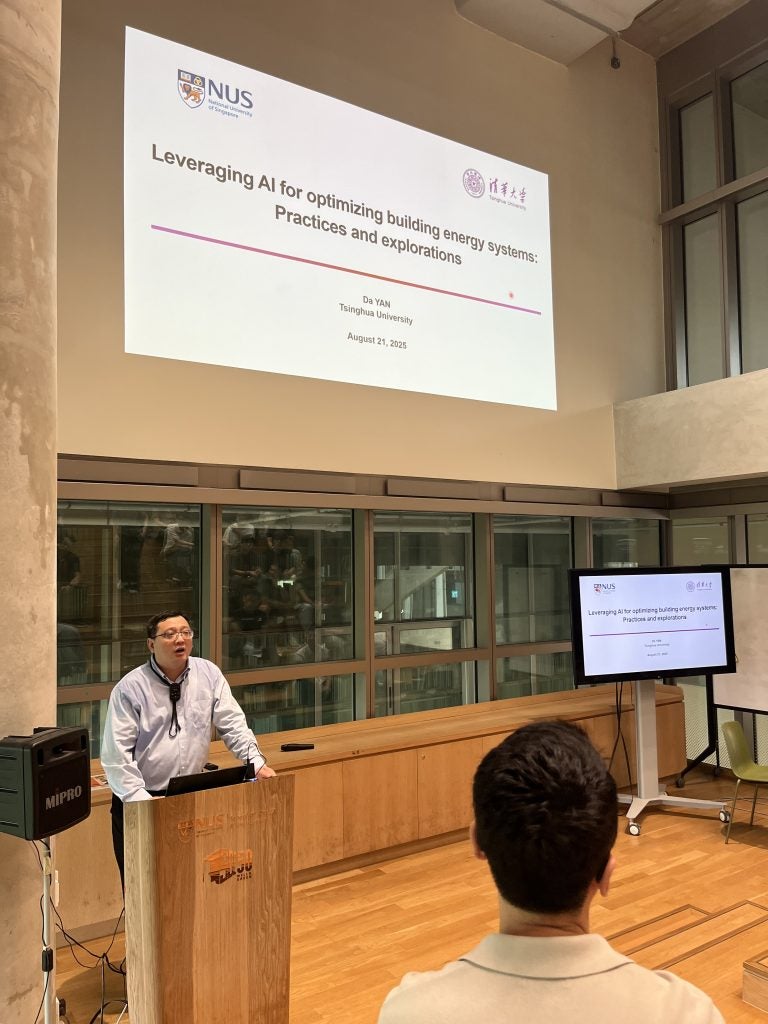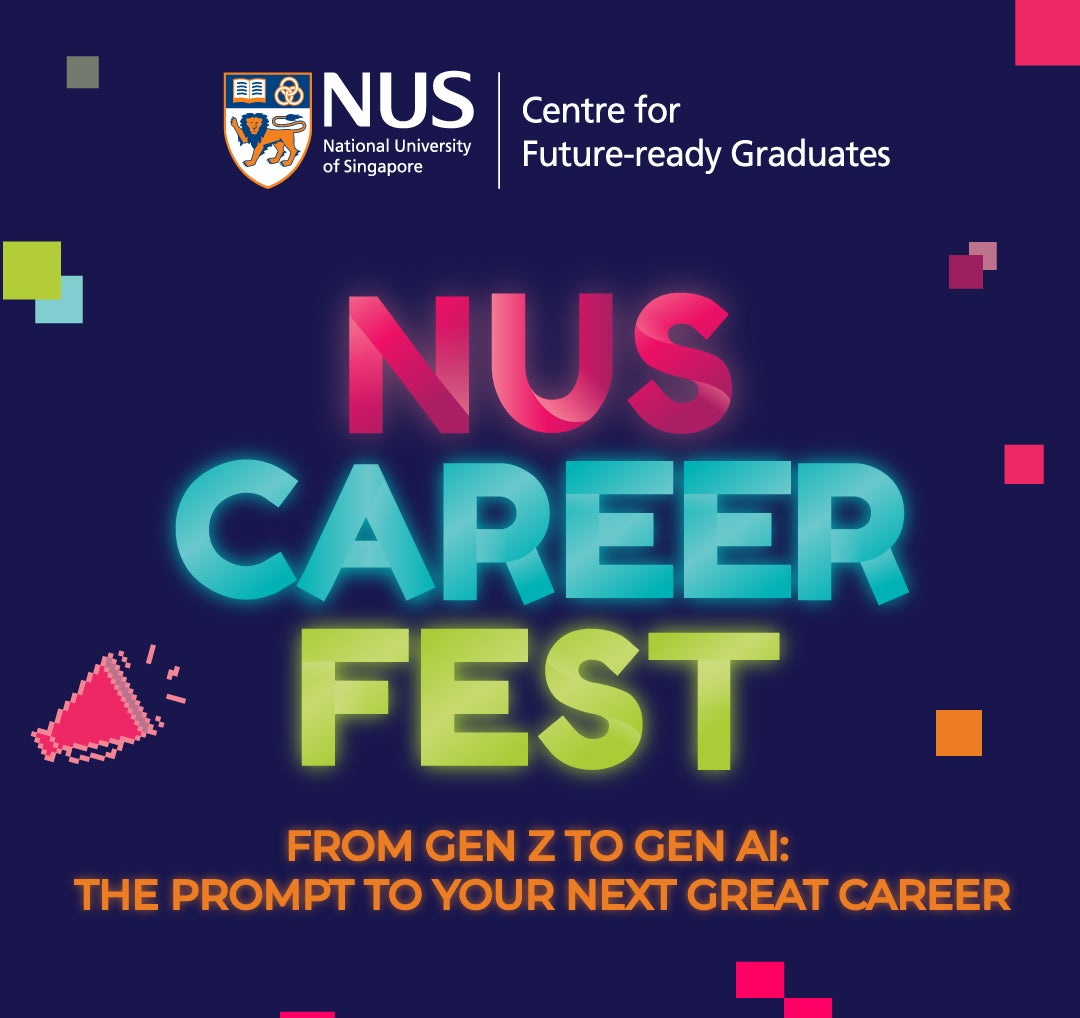EVENTS & OTHER HAPPENINGS
CDE Industry Day 2025
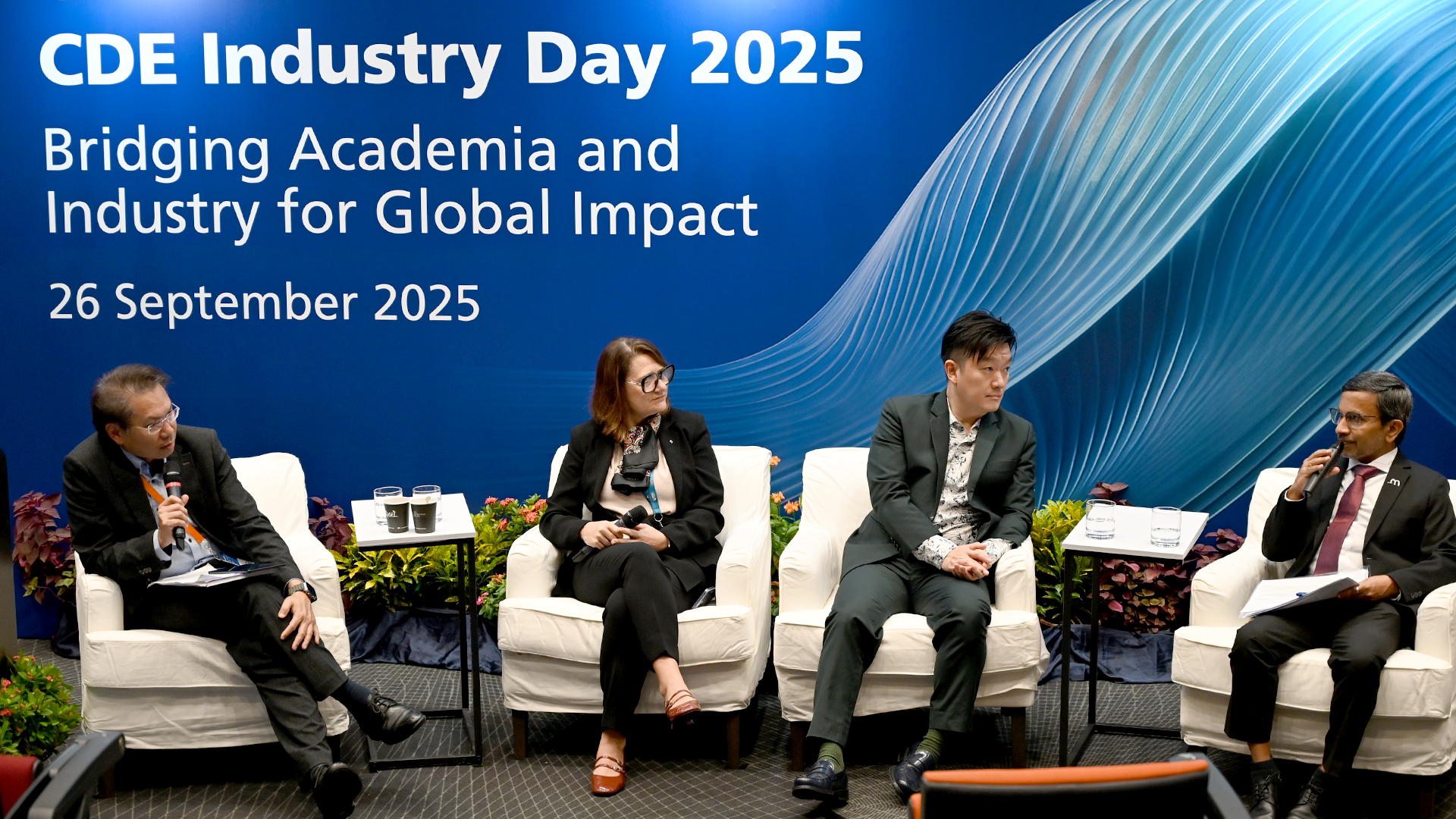
“The spirit of Industry Day is about transforming our intention into action” – Prof Teo Kie Leong, Dean, CDE
An annual event at CDE, Industry Day 2025 brought together leaders from academia, industry and government under the banner ‘Bridging Academia and Industry for Global Impact’.
Highlights included keynote talks on semiconductors and sustainability, a panel on Singapore’s role as a global tech and talent hub, and a showcase of more than 30 innovations spanning clean energy, sustainable construction, robotics, AI, and more.
The College also signed four new MoUs with Delta Electronics, GlobalFoundries, Micron, and Stats ChipPAC, strengthening partnerships and creating opportunities for our students and researchers.
Bold partnerships, breakthrough research and future-ready talent are essential to solving the world’s most urgent challenges.
Read more here: https://cde.nus.edu.sg/news-detail/industry-day-highlights-bold-partnerships-and-future-ready-talent/
CFI Symposium 2025

Singapore’s coastlines face some of the toughest tests of climate change — from rising seas to stronger waves. Meeting these challenges will take science, innovation and collaboration.
Since its launch in 2023, the Coastal Protection and Flood Resilience Institute (CFI) Singapore, hosted at CDE, has supported 17 projects and nearly 90 principal investigators, researchers, PhD and Master’s students. At the CFI Singapore Annual Symposium on 18 September 2025, close to 300 researchers, industry and government partners gathered to share new ideas and breakthroughs shaping Singapore’s resilience strategy.
Two projects by CDE researchers highlight this effort:
- Assistant Professor Pearl Li Yuzhu is developing a model to simulate how sediments move through mangrove root systems. This research could improve mangrove restoration efforts, enabling these natural defences to take root more successfully and provide stronger, nature-based protection against coastal flooding.
- Associate Professor Gary Lei is studying wave–structure interactions in Singapore’s coastal environment. His work will generate data to improve forecasting of wave impacts and guide the design of coastal structures that are more effective and tailored to local conditions.
The symposium also marked the signing of new MoUs with Giken Seisakusho Asia, Jacobs International Consultants, Pan-United Corporation, Samsung C&T, ST Engineering Unmanned and Integrated Systems, and Surbana Jurong Consultants, extending CFI Singapore’s partnership network with industry.
In addition, PUB announced the awarding of 14 Applied Research projects worth $22 million under its first grant call. Among them is a collaboration between Assistant Professor Geng Guoqing, BeeX and Delta Marine Consultants to develop an autonomous underwater vehicle system that integrates AI, sonar and Non-Destructive Testing technologies. This innovation will make inspections of ageing coastal structures safer, more efficient and more accurate.
Read more here: Driving coastal and flood resilience with science and technology
Cities Symposium 2025: Building cities that live well
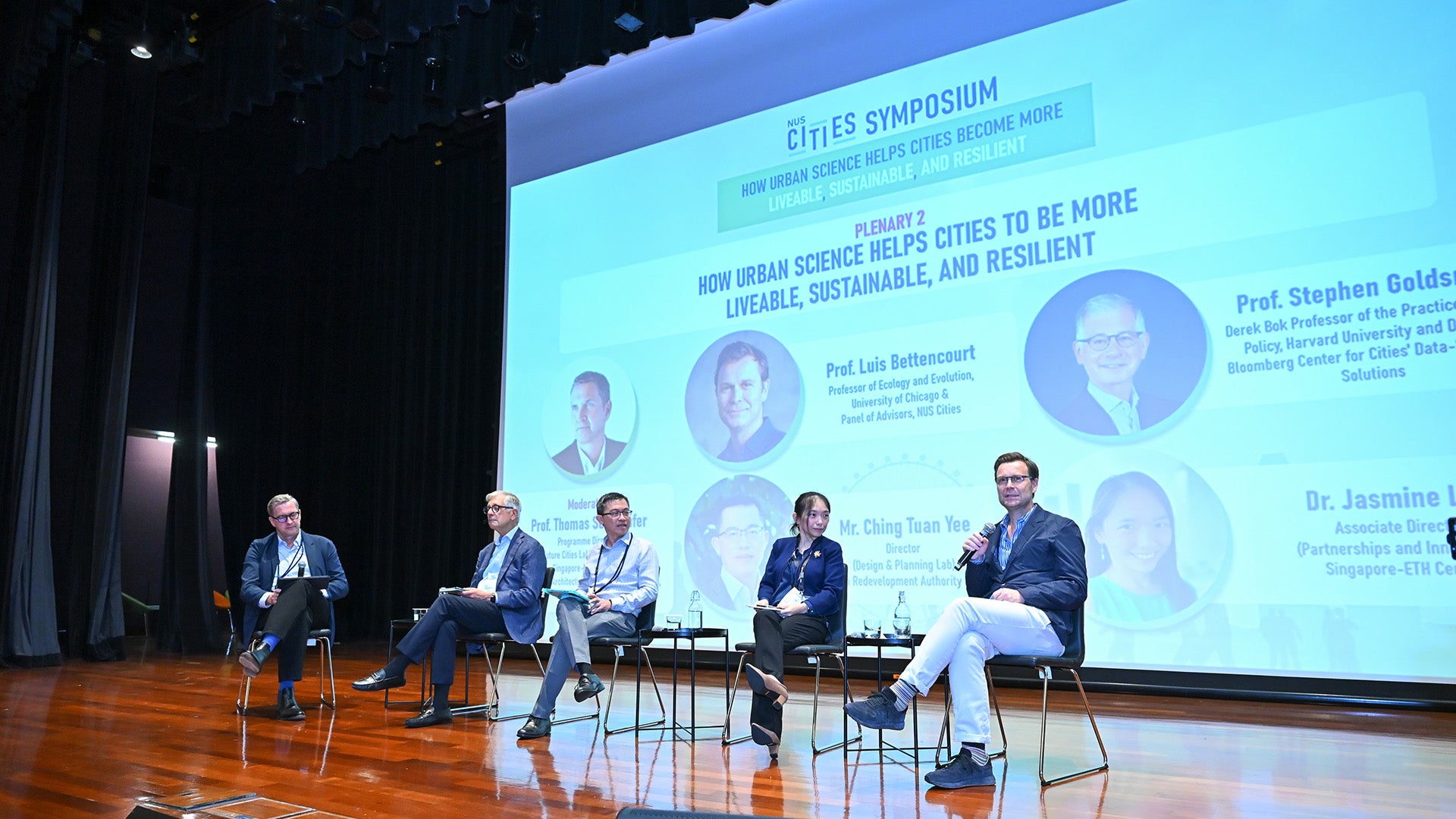
"Cities are living entities... They are not just bricks and mortar” - Mr Ong Ye Kung, Minister for Health and Coordinating Minister for Social Policies.
That message from the guest-of-honour set the tone for the third NUS Cities Symposium, held on 3 September 2025. The event brought together policymakers, researchers, urban practitioners, and students to explore how urban science can help cities respond to challenges such as ageing populations, climate change, social cohesion, and sustainable growth.
Hosted by NUS Cities, an interdisciplinary centre hosted within CDE, a recurring theme across the symposium’s keynotes and panels was that cities must put people first.
From understanding lived experiences and social networks to co-creating solutions with communities, speakers emphasised that city planning must serve the needs, aspirations, and well-being of the people who inhabit them. Discussions covered topics from health and senior mobility to housing affordability, climate adaptation, and inclusive design, returning to the central question of how to build healthier, more resilient, and more liveable cities for generations to come.
"We are all stakeholders, we all live in cities, we all live in homes, so everybody, regardless of whether you are building professionals or not, you are part of the journey,” said the Director of NUS Cities, Professor Yeo Siew Haip.
Read more about how people-first thinking aims to shape healthier, more resilient cities: https://cde.nus.edu.sg/news-detail/building-cities-that-live-well/
Charting a path forward to control microplastic pollution
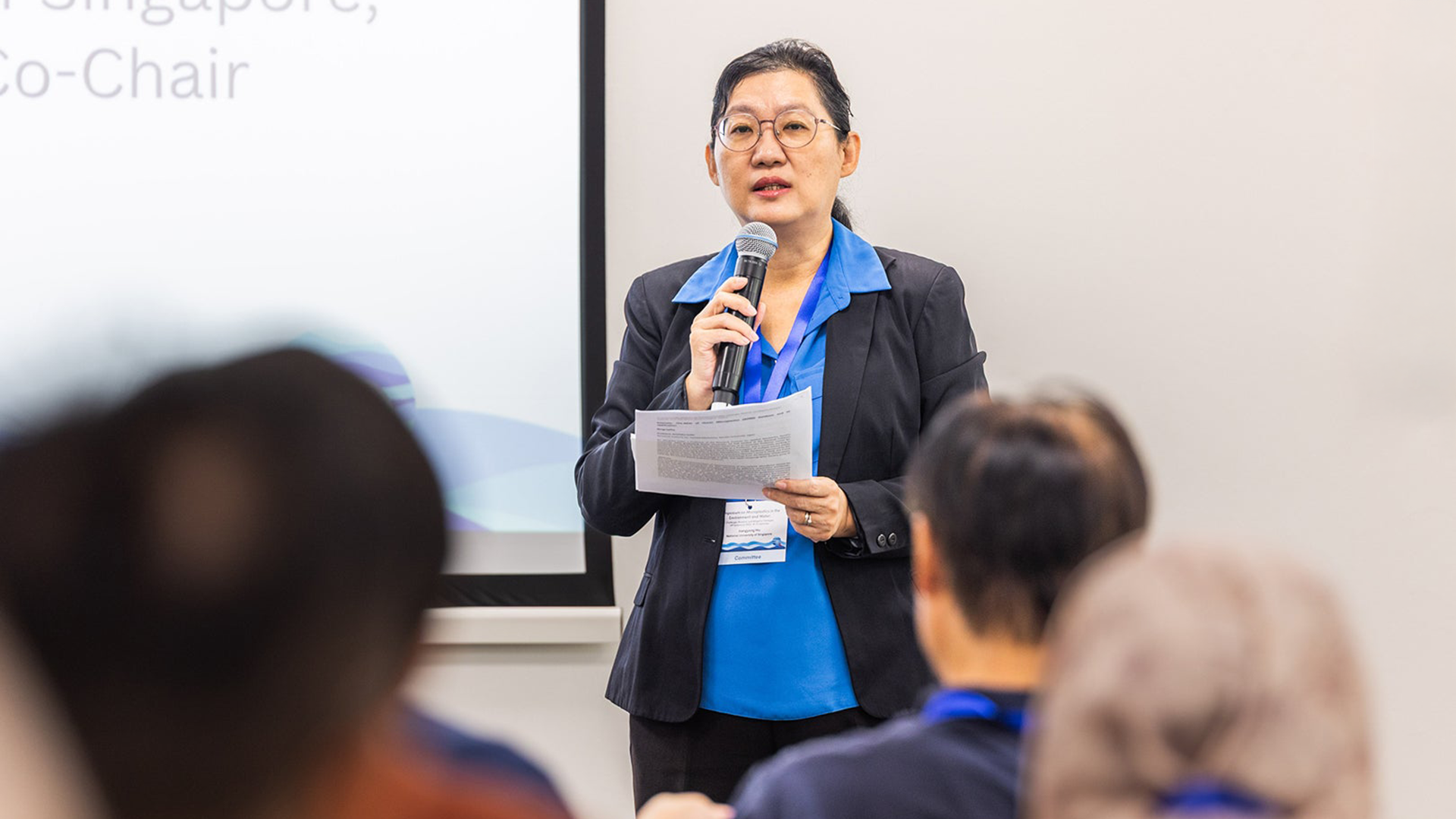
In the water we drink, the air we breathe, and increasingly in the food we eat - microplastics and nanoplastics are fast emerging as one of our greatest environmental challenges.
The recent Symposium on Microplastics in the Environment and Water, held as part of as part of NUS Sustainability Connect 2025, brought together international researchers, policymakers, and other key players to share the latest science and solutions.
From revealing hidden plastics in household laundry products to building a global atlas of ocean microplastics, the keynotes and research presentations showed just how far-reaching this issue is, and how urgently collaboration is needed.
Researchers from CDE also presented pioneering work on airborne plastics, bioimaging their effects in zebrafish, “plastic roads” in Singapore, and the role of household water filters.
Read more about the symposium here: https://cde.nus.edu.sg/news-detail/charting-a-path-forward-on-controlling-microplastic-pollution/
Celebrating two years of on-boarders orientation programme!
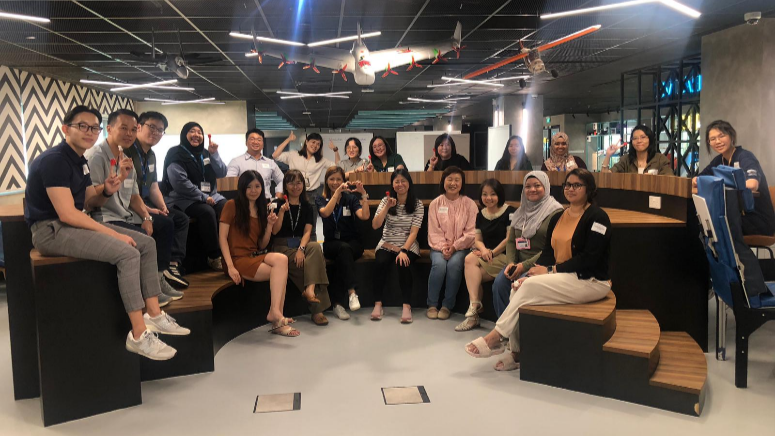
Since its launch in July 2023, the CDE On-boarders Orientation Programme for new executive and administrative staff has proudly welcomed over 130 new hires across 10 facilities. This milestone reflects our ongoing commitment to nurturing a warm and inclusive community for every new member of the E&A family. Our recent session, held on 13 August 2025, saw 20 enthusiastic new hires join us for an engaging and interactive orientation.
Participants had the unique opportunity to connect with the Dean, ask questions, and gain valuable insights about their journey ahead. The highlight of the programme was the campus tour, where the group visited Innovation and Design Lab, Central Workshop, and the Formula SAE Lab. Special thanks to our tour leaders for their detailed introductions, which made the experience truly enriching. It was a joyful session filled with vibrant discussions, new friendships, and memorable moments. Here’s to many more years of welcoming and empowering our new colleagues!
Leveraging AI for optimising building energy systems practices and explorations
Professor Yan Da from Tsinghua University shared in a recent guest lecture how AI is revolutionising building energy systems by improving energy efficiency, operational performance, and sustainability on 21 August 2025, at the SDE4 Forum.
He discussed innovative AI applications, including real-time occupancy detection, occupant monitoring, and occupancy prediction, that optimise energy use in complex buildings. The talk addressed challenges such as fluctuating energy demands and the need for occupant-centric controls, sharing insights from real-world case studies. Prof Yan Da also emphasised the importance of combining AI with HVAC expertise to further enhance energy efficiency and system resilience, supporting global sustainability goals. The session was facilitated by Assistant Professor Hu Maomao and Associate Professor Adrian Chong.
Research group from DID run Spatial Computing Hackathon

Spatial Computing is an immersive technology that blends both digital and physical environments. Assistant Professor Gabriel Lipkowitz, leading the Interactive 3D Design (i3D) Group from DID, and Apple Certified Trainer Mr Jia Chen Yee co-organised the world’s first university hackathon dedicated to spatial computing using the Apple Vision Pro.
The hackathon attracted more than 50 students from institutions around Singapore. Many had no prior experience with the Swift programming language needed to build the spatial apps. But with a one-day introduction to Swift and visionOS from both the student mentor team and Mr Jia, the participants built Apple Vision Pro apps from scratch in just four days. These apps addressed challenges in areas of healthcare that could utilise the technology.
Following two days of planning and development, the teams then presented their solutions to a panel of judges that included Associate Professor Yen Ching-Chiuan from DID, Associate Professor Tan Chek Tien from the Singapore Institute of Technology, and Ms Yi Yuan, Co-Founder of Hiverlab, a company specialising in immersive spatial intelligence.
One of the winners was PhoboSphere, which tackled common phobias such as arachnophobia, through virtual exposure with varying levels.
Asst Prof Lipkowitz and his team were excited by the energy they observed during the hackathon. “We have kicked off a brand-new community, Spatial Singapore, for visionOS developers, students, and everyone passionate about spatial computing,” he said.
Read more here: https://cde.nus.edu.sg/news-detail/interactive-3d-design-group-from-did-run-spatial-computing-hackathon



